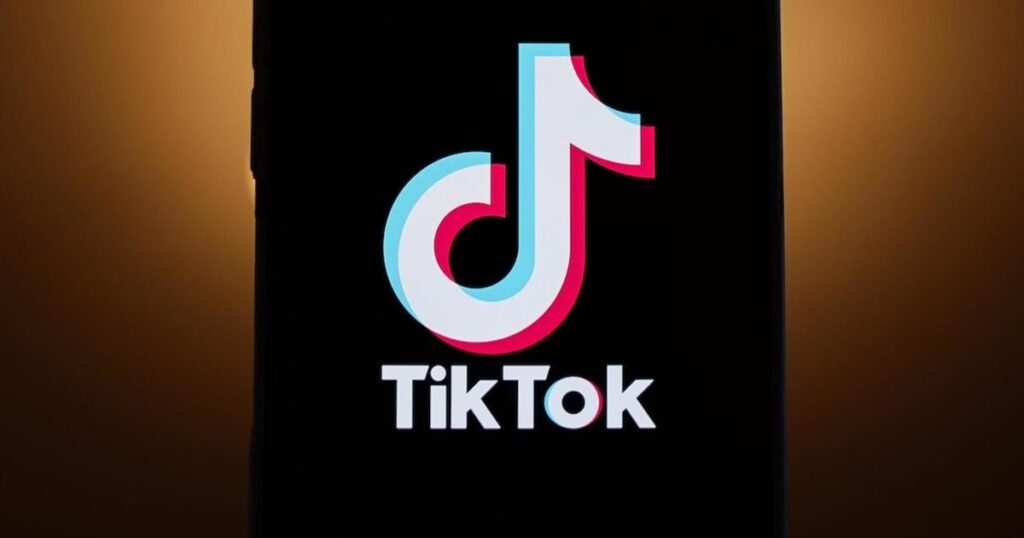Washington — The Supreme Court on Wednesday said it will take up a challenge to a new law that could lead to a ban on TikTok in the U.S, setting up a showdown over access to a widely popular app used by tens of millions of Americans.
Arguments will be heard by the high court on Jan. 10, an expedited timeline that allows for the court to consider the issue before the law takes effect on Jan. 19.
The Supreme Court said in a brief order that the Justice Department and lawyers for TikTok, as well as a group of users who separately challenged the law, should be prepared to argue whether the ban passed by Congress violates the First Amendment.
TikTok and its parent company, ByteDance, asked the high court earlier this week to temporarily block enforcement of the law while it appealed a decision by the U.S. Court of Appeals for the District of Columbia Circuit. The Supreme Court said in its order that consideration of that request for emergency relief is deferred pending oral argument.
The TikTok ban
“Congress’s unprecedented attempt to single out applicants and bar them from operating one of the most significant speech platforms in this Nation presents grave constitutional problems that this Court likely will not allow to stand,” lawyers for TikTok wrote in their request to the Supreme Court.
TikTok suffered a blow on Dec. 6 when a panel of three judges from the D.C. Circuit denied its bid to overturn the law. A week later, the appeals court denied TikTok’s request to delay the law from taking effect pending a Supreme Court review.
The law, which Congress passed in April as part of a foreign assistance package, gave TikTok nine months to sever ties with ByteDance, its Chinese parent company, or lose access to app stores and web-hosting services in the U.S. President Biden quickly signed the bill into law, and it is set to take effect on Jan. 19, with the possibility of a one-time 90-day delay granted by the president if a sale is in progress.
President-elect Donald Trump tried to ban TikTok during his first term in office, but reversed his position during the presidential campaign and vowed to “save” the app. He told reporters during a press conference Monday that the platform played a role in helping him win the youth vote in the November election and said he would “take a look at TikTok.”
“I have a warm spot in my heart for TikTok,” he said. The same day, Trump met with TikTok’s CEO Shou Chew at his Mar-a-Lago estate.
With arguments before the Supreme Court set for Jan. 10, it will be the Biden administration that will present the government’s case. TikTok is represented before the high court by Noel Francisco, who served as solicitor general during Trump’s first term.
Still, TikTok is hoping either the Supreme Court or Trump will save it.
In its Dec. 6 ruling, the appeals court determined that the U.S. government’s concerns about the Chinese government’s collection of Americans’ data and the ability for it to covertly manipulate content on the platform constitute a “compelling national security interest.” The court called the government’s concerns “well founded,” pushing back on TikTok’s arguments that the risks were speculative.
The appeals court said that it recognized its decision will have “significant implications” for TikTok and its users.
“Consequently, TikTok’s millions of users will need to find alternative media of communication,” Senior Judge Douglas Ginsburg wrote for the court. “That burden is attributable to the [People’s Republic of China’s] hybrid commercial threat to U.S. national security, not to the U.S. Government, which engaged with TikTok through a multi-year process in an effort to find an alternative solution.”
When it challenged the law in May, TikTok asserted that it never had a choice between divestment or a ban because a forced sale “is simply not possible: not commercially, not technologically, not legally.” The Chinese government vowed to block the sale of TikTok’s algorithm which tailors content recommendations to each user. A new buyer would be forced to rebuild the algorithm that powers the app. The petition said “such a fundamental rearchitecting is not remotely feasible” under the restrictions within the legislation.
“The platform consists of millions of lines of software code that have been painstakingly developed by thousands of engineers over multiple years,” the petition said.
https://www.cbsnews.com/news/supreme-court-tiktok-ban-law/


